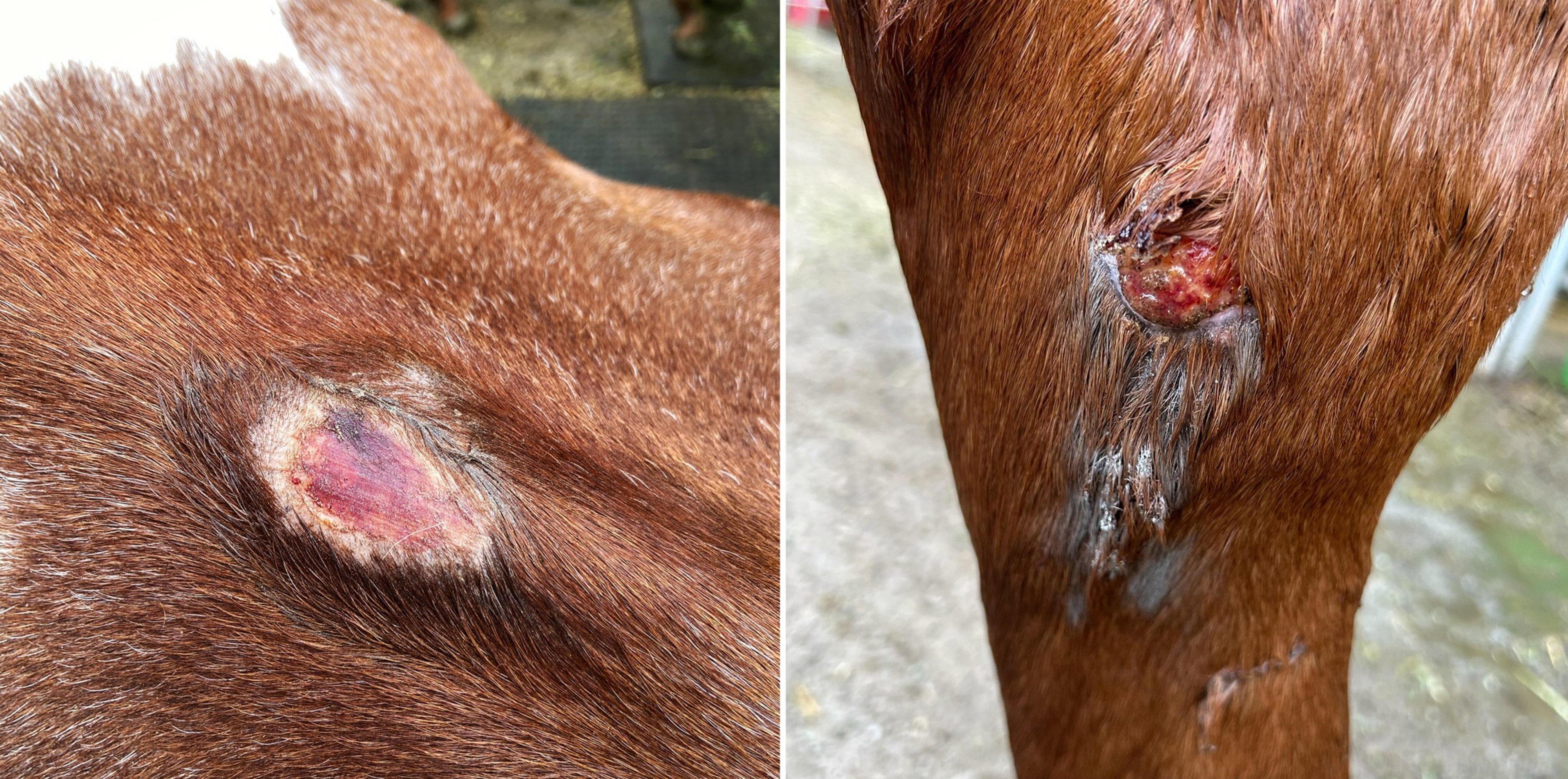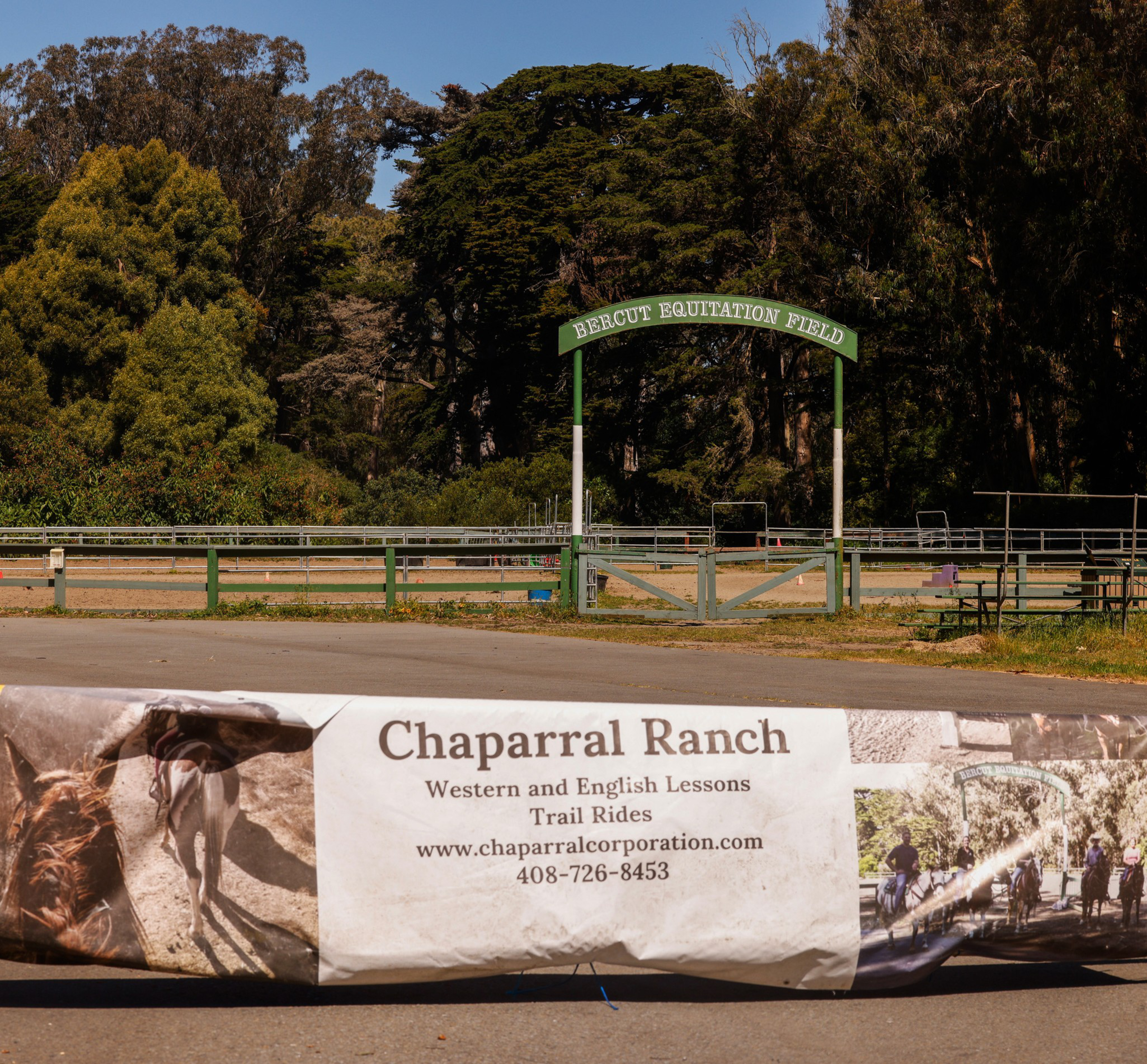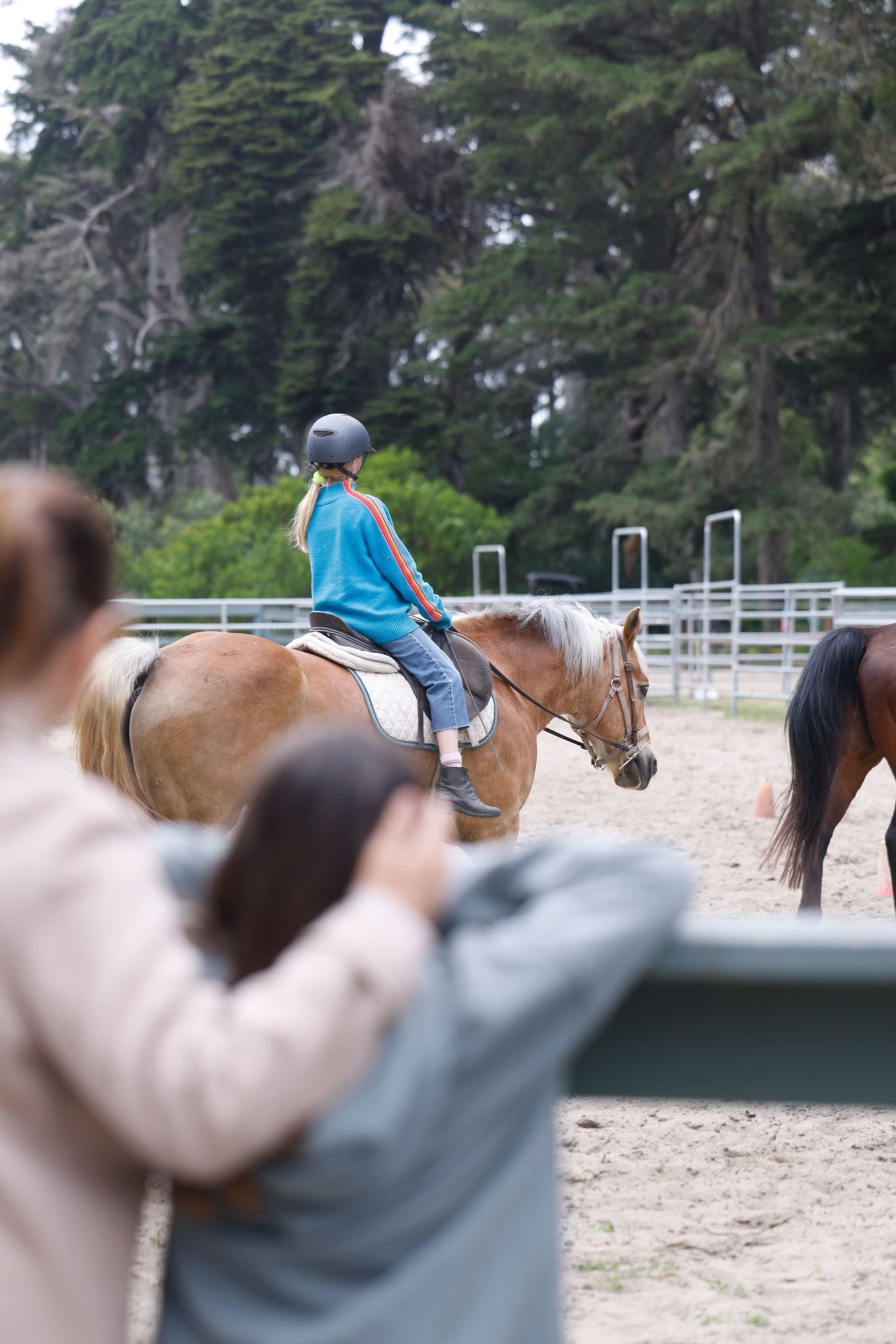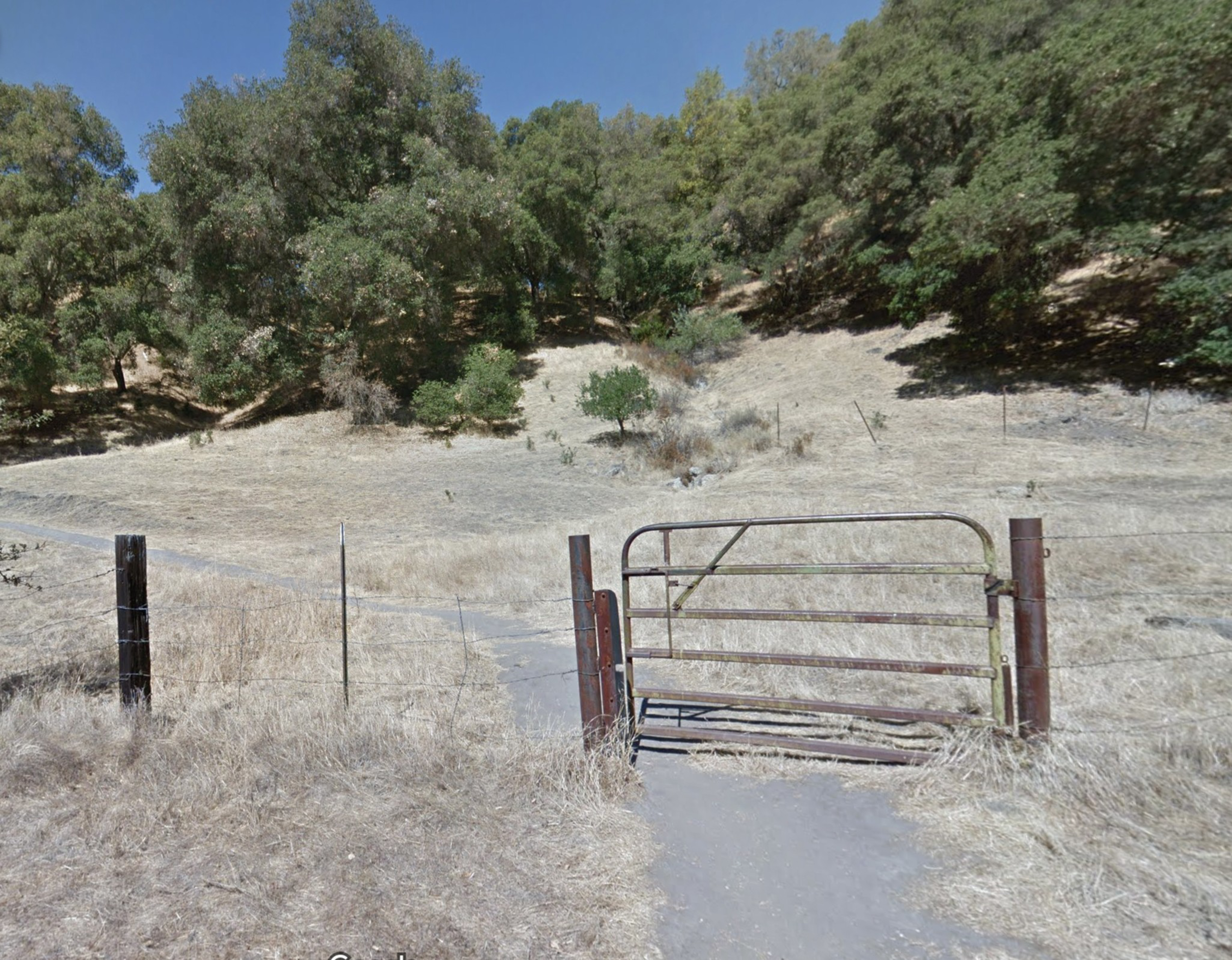When the San Francisco Recreation and Park Department was presented with evidence last week of animal mistreatment, serious injuries and dangers to children during horseback rides at Golden Gate Park’s Bercut stables, it quickly pulled the plug on the activity.
The department—which continued to renew the Chaparral Corporation’s permit to operate riding lessons and horse camps over a period of about five years—said it wasn’t entirely aware of the deep well of concerns about the equestrian operation until reporters brought it to light.
But interviews and documents unearthed by The Standard show that warning signs were in plain view for years but largely overlooked by San Francisco officials who let a troubled horseback riding company operate in San Francisco’s largest park and at Camp Mather, the city-run family retreat near Yosemite.


In one instance, a woman with decades of experience owning horses repeatedly sounded alarm bells to a myriad of city agencies, including the Recreation and Park Department, the Recreation and Park Commission, the Parks Alliance, Animal Care and Control, the Commission of Animal and Welfare and Friends of Camp Mather, the nonprofit associated with the site.
In emails obtained by The Standard, Rosemary Passantino described a horseback riding company with a seemingly endless number of skeletons in its closet—warnings echoed by Chaparral employees and members of the public who spoke to The Standard as part of a three-month investigation into Chaparral.
In the end, the parks department continued renewing Chaparral’s permits to operate on city land, most recently in December.
“The can just kept getting kicked down the road,” Passantino said in an interview. “Even after the Covid lockdowns ended. Even after the lawsuits. They just kept kicking that can down the road.”


Chaparral and the city now face a gross negligence lawsuit from a woman, Christine Kendrick, who was thrown off a horse during a beginner riding lesson at Chaparral, breaking her back and pelvis. That case is set for trial later this year.
There were other warning signs that Chaparral’s operations weren’t up to par.
Records show that Chaparral’s CEO, Shawn Mott, founded a now-defunct horseback riding company that was the subject of multiple lawsuits in the 2000s. The Occupational Safety and Health Administration (OSHA) also found violations at Chaparral in 2022 after the death of an employee.
Recreation and Park Department spokesperson Tamara Aparton confirmed the agency knew about the OSHA violations.
“I think the Recreation and Park Department needs to stand up and take account,” said Board President Aaron Peskin. “They’re the landlord. They’re the lessor and they’re the permit issuer. This is what the Recreation and Park Department is supposed to oversee. They’ve got some answers that they need to account for to the media and to the city.”
Chaparral must vacate Golden Gate Park by Saturday after the city revoked its permit last week. It also won’t be able to operate at Camp Mather. The company still has locations in the South Bay cities of Woodside, Milpitas and Los Gatos, along with a site near Monterey Bay.


‘I don’t know how many complaints are going to need to come in’
Passantino, a Marin County parks employee who owns two horses, said her skepticism about the Chaparral Corporation began in February 2020 when she penned an opinion article in the San Francisco Chronicle titled, “SF must protect horses in Golden Gate Park (opens in new tab).”
In the article, Passantino warned that the city was not properly equipped to handle horses in an urban environment, explaining that there was “no influential humane society or animal welfare nonprofit in San Francisco that is focused on protecting equines.”
The Chronicle article was just the start. That same month, Passantino reached out to Recreation and Park’s property manager, Brian DeWitt, raising questions about how the city would provide proper oversight for Chaparral’s horses.
In an emailed response to Passantino, DeWitt said they had provided Chaparral with the University of California, Davis’ horse care standards and that Animal Care and Control would be making at least two surprise inspections per year.
“We are not the agency that investigates animal welfare claims, and we are not experts in horse care—that’s why we brought in the appropriate agency [Animal Care and Control],” Recreation and Park spokesperson Aparton wrote in a statement. “Their investigation did not find any laws were broken but, resulted in recommendations. We believed these recommendations had been implemented by Chaparral. Your story revealed they likely had not.”
Virginia Donohue, the executive director of Animal Care and Control, deferred back to Recreation and Park when asked in an interview about her agency’s role in allowing Chaparral to continue.
“I have no control over the permit,” she said. “We can go out, we can inspect, you know, we can take an enforcement action if we’ve got enough. We can help move people into compliance. But we don’t issue permits, we don’t issue business licenses. That’s not what we do. And what was going on [at Chaparral] was not enough to bring a criminal case.”
Over the course of years, Passantino’s warnings became more stark and ranged from calling out a lack of medical attention at Chaparral’s stables to anecdotes about children being bucked off horses.

On July 12, 2023, Passantino began passing along the contact information for employees who had concerns about Chaparral to Animal Care and Control’s Officer Rebecca Fenson.
“Is SFACC ok with Parks repeatedly re-issuing temporary permits to a corporation that chronically fails to comply with basic efforts to conduct some oversight over the animal welfare?” Passantino wrote to Fenson.
A day later, Fenson replied, thanking Passantino, and said the agency was “looking into this now.”
That same year, Passantino also reached out to Friends of Camp Mather and spoke to its members at a monthly meeting. She said she was told to go to the parks commission. When she reached the parks commission secretary, Passantino said she was told the topic of permitting horses had never been discussed at a public meeting.
“I was sent in circles,” said Passantino.

The Recreation and Park Commission had also received warnings in the fall of 2023 from a woman who told its members (opens in new tab) about Animal Care and Control having been called out to Chaparral’s site “numerous times” and concerns about labor violations.
“A mother recently emailed San Francisco Park staff to let them know about two separate incidents that involved children as young as six being thrown by bucking horses uncontrolled by workers of this corporation,” she said to the park commissioners. “Yet, this pilot permit was renewed again shortly after that warning and runs through the end of this year.”

Recreation and Park Commission President Kat Anderson did not respond to a request for an interview, nor did Friends of Camp Mather. Park and Recreation’s General Manager Phil Ginsburg did not respond to repeated requests for comment about his department’s role in renewing Chaparral’s permits.
Michael Angelo Torres, who heads the city’s Commission of Animal Control and Welfare, said Passantino did reach out to him and his colleagues in June 2023 asking for a horse advocacy group to give a presentation. Torres said the effort didn’t pan out since he didn’t hear back from Passantino about organizing the presentation.
But the two continued to talk, and he said his commission had in the last few weeks inquired about Chaparral with the Recreation and Park Department and Animal Care and Control.
“Although the Commission was busy looking into a number of other issues at the time, I sincerely wish we would have looked further into the problems with Chaparral,” he wrote in an email to The Standard.
For Passantino, the frustration remains.
“It is like having a tiger at the zoo and you have a zoo keeper who knows nothing about a tiger,” she said about the city’s role in overseeing Golden Gate Park’s horses. “The zoo would never do that.”
Court cases and OSHA violations
Court cases dating back years show that Mott, Chaparral’s CEO, had a checkered history in the horse world.
Before starting Chaparral, Mott ran another horseback riding company called Sunol Wilderness Pack Station, which appears to have dissolved in the mid-2000s. The Standard found a handful of lawsuits dating back to the early 2000s against Mott’s prior company.

Echoing the gross negligence claim the company is now facing, one of the lawsuits in 2004 described a woman falling off a horse and claiming the company wasn’t equipped to handle the animal.
The other lawsuits against Mott’s company included an eviction notice and two breaches of contract where plaintiffs collectively sought nearly a quarter million dollars. In one case, the suit alleges Mott wasn’t making payments on equipment he had rented. In another, a business partner said he hadn’t protected him from liabilities arising from the Sunol horseback riding company.
The Standard also found at least six small claims cases against Mott, including instances where plaintiffs said he didn’t pay for horse dentistry work or hay delivery.
“I believe, had these agencies done their due diligence, which they were supposed to do, many of these barns wouldn’t be in this mess right now,” Shelly Cannon, a South Bay horse owner, said of Mott’s past. “To this day, we are still perplexed as to why they got to have so many locations—how they were able to spread their tentacles with the reputation that has preceded them for years. And it makes you really wonder, what’s behind this?”
In August 2022, a dog walker in Golden Gate Park found a Chaparral employee lying unresponsive in the grass near the company’s stables. The employee, who lived on-site in a Chaparral trailer, died at the hospital from cardiac arrest, an account of the incident by OSHA states. Upon an investigation of the company, OSHA fined (opens in new tab) Chaparral $1,050 for a variety of health and safety issues.
Aparton said the agency’s process for vetting permittees includes looking back a decade for any litigation.
“All of these are beyond that time frame,” wrote Aparton in a statement. “Chaparral provided references from the other cities in which they operate, which we checked, and we also visited their operation before we granted their permit.”
After Sunol Wilderness Pack Station dissolved, Mott and Susan Pennell co-founded Chaparral in 2009. In previous comments to the Standard, Mott and Pennell denied accusations of animal mistreatment and claimed they did the best they could operating in San Francisco.
Parks spokesperson Aparton said the department will implement new safeguards to ensure horseback riding can continue at Golden Gate Park.
For Passantino, the Chaparral debacle is a lesson in making sure city governments who want to offer horseback riding have knowledgeable people overseeing it.
“If you’re bringing in live animals for whatever it is, recreation or therapy programs, you have to have animal welfare expertise to be able to supervise these operations,” she said. “You have to have people with the skills and time and commitment.”
